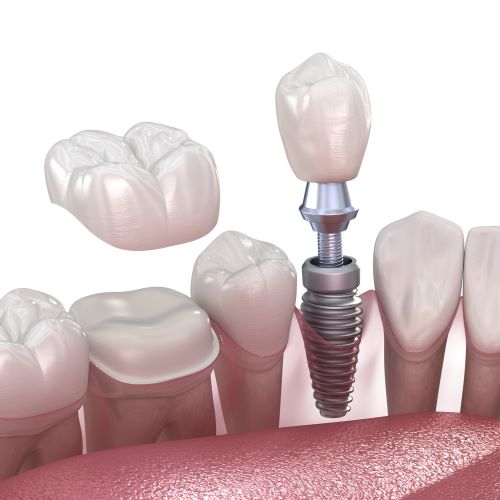Academic Departments
Welcome to the OHSU School of Dentistry, where excellence in dental education, research and clinical practice converge. The school has three academic departments and one independent division, each dedicated to advancing oral health through comprehensive care, innovative research and community engagement.
Academic departments:
- Department of Oral Rehabilitation and Biosciences: We provide a solid foundation in essential disciplines such as anatomy, biochemistry, microbiology and radiology. Pre- and post-graduate dental students benefit from comprehensive education in areas including nutrition, neuroscience, pharmacology, physiology and oral pathology.
- Department of Oral and Craniofacial Sciences: We offer comprehensive, contemporary and evidence-based clinical services and education, and lead research in oral and maxillofacial pathology, oral and maxillofacial radiology, oral medicine, orofacial pain, and orthodontics and dentofacial orthopedics.
- Department of Regenerative and Reconstructive Sciences: Dedicated to restoring damaged tissues such as bone and gum, we specialize in promoting optimal oral health outcomes through innovative techniques and training programs.
Independent Division:
- Division of Dental Public Health: As an autonomous entity within the school, Dental Public Health plays a pivotal role in overseeing the external rotation experience for all D.M.D. students. Additionally, it serves as a vital resource for oral health public policy and research initiatives, to ensure the community's well-being extends beyond the dental clinic.
Biomaterial and Biomedical Sciences
The Division of Biomaterial and Biomedical Sciences is housed in the Department of Oral Rehabilitation and Biosciences. It is responsible for basic science instruction in dental materials, anatomy, biochemistry, immunology, microbiology, neuroscience, nutrition, pharmacology and physiology for predoctoral dental students and advanced students in dental graduate or certificate programs. Many faculty members participate in the School of Dentistry doctoral training programs. They also collaborate with their colleagues in the School of Medicine and OHSU research institutes on a variety of projects. Faculty members in this division serve on university, dental school, departmental and graduate training program committees. We have basic and applied research programs in biomaterials and biomechanics, polymer chemistry, cell and developmental biology, neurological science, protein biochemistry and microbiology.
Explore more of our site:
LAB pages to learn more about our research
STUDENTS page to learn more about training with us
TEAM page to learn more about current faculty
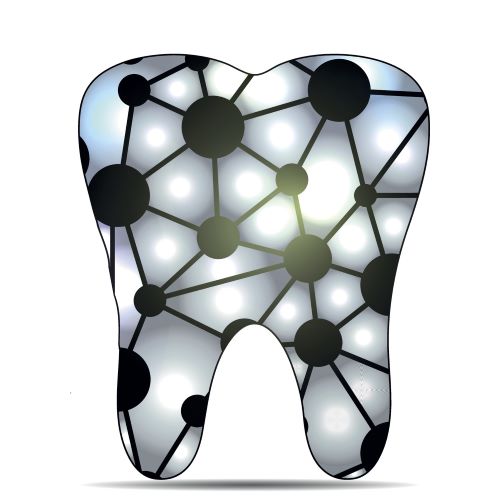
Dental Public Health
The mission of the Dental Public Health division is to analyze the social, behavioral and policy-influenced factors that affect oral health outcomes in individual patients and the entire population. We do this by using a comprehensive didactic and experiential learning curriculum that begins in year one of the pre-doctoral program and culminates with the dental student’s 4th year experience in community clinical rotations.
Sustainable public prevention programs and outstanding oral health outcomes require a professional workforce committed to patient-centered care, evidence-based approaches and professional dialogue. Pre-doctoral students experience these approaches at every stage of their education.
Explore more of our site:
STUDENT opportunities in dental public health
PATIENT site to contact us for services
TEAM page to learn more about current faculty

Endodontology
The Division of Endodontology provides learning opportunities for students and residents in the etiology, diagnosis, prevention and treatment of diseases of the pulp and periradicular tissues. Our patients receive compassionate care in state-of-the-art facilities. By partnering across disciplines, we ensure the faculty are equipped to teach using contemporary best evidence. Our research is driven by our intellectual curiosity and desire to problem solve. By volunteering at the local and national level in organized dentistry, we promote our value of service to others. Our faculty are from diverse educational backgrounds who actively foster relationships with other thought leaders in endodontics. We are your partner in saving the natural dentition and promoting total oral health.
Explore more of our site:
STUDENTS page to learn more about training with us
PATIENT site to contact us for services
TEAM page to learn more about current faculty
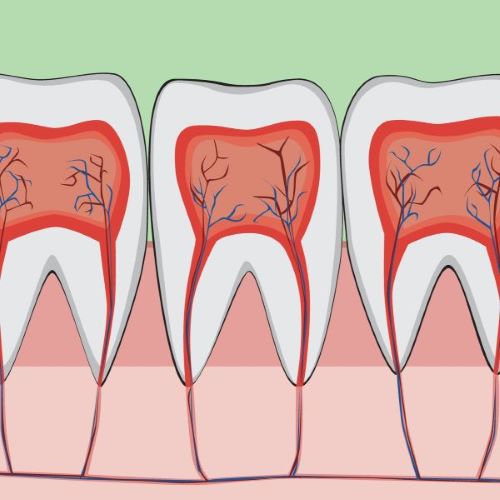
General Practice Residency
The General Practice Residency (GPR) is housed in the Department of Oral Rehabilitation and Biosciences and focuses on the treatment of patients with special care needs, including complex medical, physical, psychological or social situations that can be a barrier to care in a traditional dental clinic. Our residents and faculty are equipped to make modifications to ensure special needs patients feel comfortable so that they have an exceptional dental experience. Patients who have not had consistent access to quality care, will find a respectful and caring environment within the OHSU General Practice Residency program.
The link between the mouth and the body is evident; it highlights the need for a holistic approach to dental care. Within the GPR, we break down the unnecessary silos between medical care and dental care, striving to treat the whole person in collaboration with our other health care colleagues. We are working toward making the connection seamless between medicine and dentistry.
Explore more of our site:
PROGRAM page to learn about our residency program
PATIENT page to access care
TEAM page to learn about our faculty
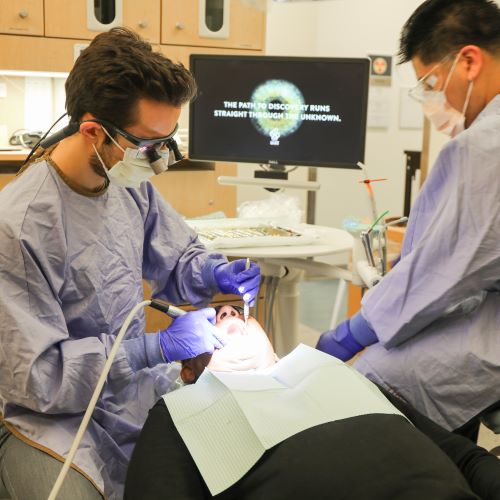
Oral Diagnostic Sciences
The Division of Oral Diagnostic Sciences is housed in the Department of Oral and Craniofacial Sciences and encompasses clinical services, education and research associated with dental specialties of oral and maxillofacial pathology, oral and maxillofacial radiology, oral medicine and orofacial pain.
Oral and maxillofacial pathologists diagnose, research and manage a multitude of non-tooth related diseases that affect the oral cavity. Through the OHSU Oral Biopsy Service, our oral pathologists render key diagnoses based on microscopic evaluation of tissue samples from the oral cavity.
Oral and maxillofacial radiologists are specialized dentists committed to the appropriate use and interpretation of imaging examinations for the teeth, jaws, and adjacent structures, radiation effects on humans, and radiation safety and protection. Through the OHSU Oral Radiology Services, our board-certified oral and maxillofacial radiologists provide comprehensive written radiographic interpretation reports for images taken at the School of Dentistry or at a referring doctor’s office.
Oral medicine specialists are essentially “physicians of the mouth,” providing diagnoses and management of oral mucosal abnormalities, salivary gland disorders, temporomandibular disorders and other facial pain. Through the OHSU Oral Medicine and Orofacial Pain Clinic in our Faculty Dental Practice, our board-certified oral medicine specialists provide comprehensive care within our community.
Explore more of our site:
RADIOLOGY page to learn more about our imaging service.
PATHOLOGY patient care site to contact us for services.
TEAM page to learn more about current faculty.
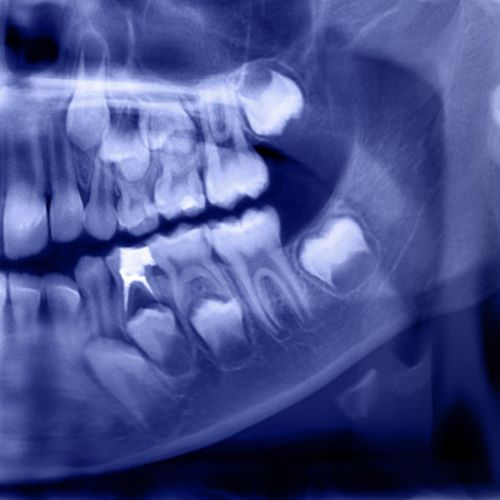
Oral and Maxillofacial Surgery
The Division of Oral and Maxillofacial Surgery, or OMFS, offers predoctoral and dual degree surgical residency programs. OMFS provides comprehensive Level 1 trauma services for craniomaxillofacial needs, dentoalveolar surgery with implants, office sedation, bone and tissue augmentation, a full-spectrum of pathology of oral and head-neck cancer and microvascular reconstructive surgery, temporomandibular disorders and jaw deformities.
OMFS surgical learners begin their educational journey by completing the curriculum to earn a medical degree. Next, they participate in mandatory rotations in general surgery and anesthesiology. In addition to structured onsite relations with colleagues and faculty, learners work with community practitioners.
Patients have access to two clinics for their oral and maxillofacial care. One is in the Skourtes Tower located on the south waterfront within the other School of Dentistry. The second clinic is at the OHSU Marquam Hill campus offering inpatient care and consultation.
Our faculty are experts in their field of research at the national and international level. They regularly serve the community by volunteering for a variety of organizations nationally and internationally in surgery and teaching.
Explore more of our site:
STUDENTS page for details on training with us
PATIENT site to contact us for services
TEAM page to learn about our faculty
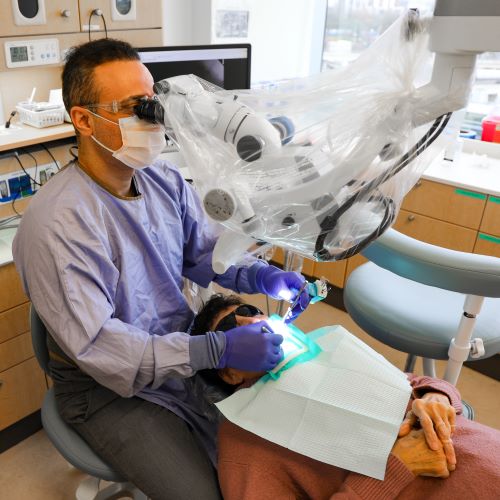
Orthodontics and Dentofacial Orthopedics
The Division of Orthodontics and Dentofacial Orthopedics is housed in the Department of Oral and Craniofacial Sciences and encompasses clinical services, education and research associated with the dental specialty of orthodontics and dentofacial orthopedics. Our specialty clinic offers a welcoming environment for clinical care, learning and discovery. Located in the Skourtes Tower on the south waterfront in Portland, our patients see spectacular views of the city and the Willamette River.
Our faculty and staff bring a wealth of experience to our Dental and Advanced Education Programs in Orthodontics and Dentofacial Orthopedics, including cleft and craniofacial orthodontic care. We emphasize a team approach to dentistry and orthodontics with a focus on evidence-based customized treatment for our patients, which results in a diverse educational experience for our students. The strengths of our combined certificate and master’s in the Orthodontics Program means that our graduate students are in high demand from dental schools and practices across the country.
By continuously updating courses, applying innovative treatment approaches and maintaining cutting-edge research, we have a program founded on excellent clinical and didactic education, discovery through research and a commitment to exceptional service for our patients.
Explore more of our site:
STUDENTS page to learn more about training with us
PATIENT site to contact us for services
TEAM page to learn more about current faculty
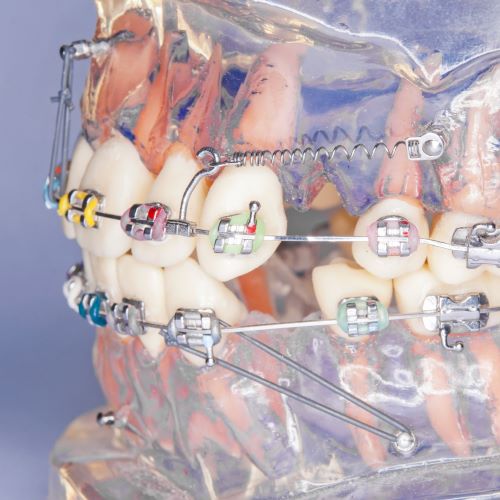
Pediatric Dentistry
The Division of Pediatric Dentistry delivers patient-centered care, evidence-based didactic and clinical training, and innovative basic and clinical research. Our team provides high-quality comprehensive preventive and therapeutic oral health care to children from infancy through adolescence including those with special health care needs. We emphasize a holistic approach to patient care, inspiring future providers to promote oral health and overall well-being.
We work alongside our medical and dental specialty colleagues to develop individualized care plans for each patient. Our colleagues in the region regularly refer patients to us who have complex medical histories or disabilities.
The pediatric dentistry faculty provide dynamic didactic and clinical training for our residents and dental students. We are actively engaged in interdisciplinary research studies that advance the field of pediatric dentistry, in collaboration with experts in microbiology, behavioral science, sleep medicine, dental informatics and dental public health.
Explore more of our site:
STUDENTS page to learn more about training with us.
PATIENT site to contact us for services.
TEAM page to learn more about current faculty.

Periodontology
The Division of Periodontology is housed in the Department of Regenerative and Reconstructive Sciences. It is recognized locally, nationally and internationally for innovative and contemporary didactic and clinical education curricula, cutting-edge research and scholarly activity, compassionate patient care, and service to the school and the community.
Our board-certified periodontists train predoctoral and advanced education students in surgical and non-surgical treatments. The Advanced Education Program in Periodontics provides exceptional clinical and didactic experiences, as well as opportunities to explore research. Students can also earn a Master of Science in Periodontology. The Advanced Education Program includes external rotations in anesthesiology and clinical care at the Veterans Administration Medical Center, and training in laser assisted periodontal therapy.
Explore more of our site:
RESIDENCY page for details about the advanced education program.
PATIENT page to access care.
TEAM page to learn about the faculty.
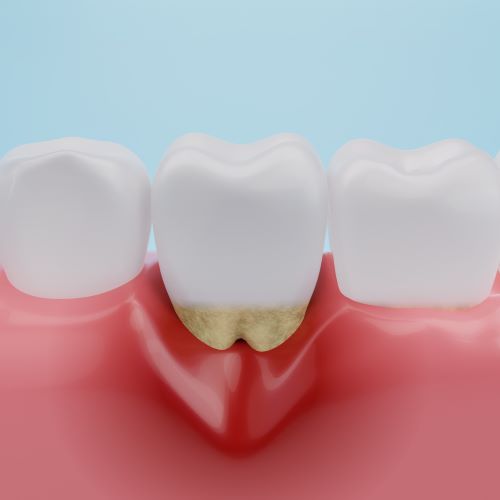
Restorative Dentistry
The Division of Restorative Dentistry, situated within the Department of Oral Rehabilitation and Biosciences, encompasses operative dentistry, implant dentistry, esthetic dentistry and prosthodontics. The primary focus is enhancing oral health and function. We are dedicated to educating students on the diagnosis and treatment of oral diseases and injuries, and employing an approach that draws from scientific disciplines and clinical practices.
Faculty within the Restorative Dentistry division play a pivotal role in mentoring student doctors in classroom settings and clinical environments. They use instructional methods, hands-on training and evaluations. Many faculty members are actively involved in dental research, professional organizations, continuing education and publishing their work in academic journals.
Explore more of our site:
STUDENTS for details about training with us
PATIENT to contact us for services
TEAM to learn about our faculty
